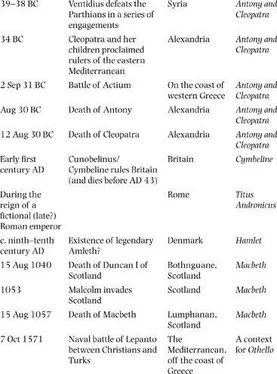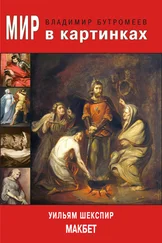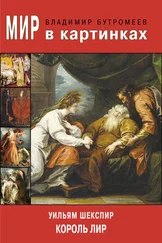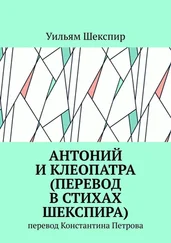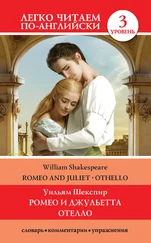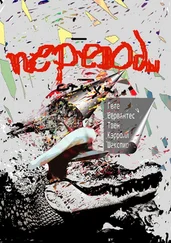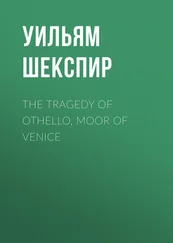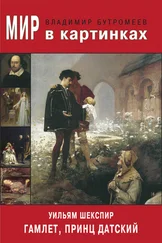Уильям Шекспир - Othello
Здесь есть возможность читать онлайн «Уильям Шекспир - Othello» — ознакомительный отрывок электронной книги совершенно бесплатно, а после прочтения отрывка купить полную версию. В некоторых случаях можно слушать аудио, скачать через торрент в формате fb2 и присутствует краткое содержание. Жанр: Старинная литература, на английском языке. Описание произведения, (предисловие) а так же отзывы посетителей доступны на портале библиотеки ЛибКат.
- Название:Othello
- Автор:
- Жанр:
- Год:неизвестен
- ISBN:нет данных
- Рейтинг книги:4 / 5. Голосов: 1
-
Избранное:Добавить в избранное
- Отзывы:
-
Ваша оценка:
- 80
- 1
- 2
- 3
- 4
- 5
Othello: краткое содержание, описание и аннотация
Предлагаем к чтению аннотацию, описание, краткое содержание или предисловие (зависит от того, что написал сам автор книги «Othello»). Если вы не нашли необходимую информацию о книге — напишите в комментариях, мы постараемся отыскать её.
Othello — читать онлайн ознакомительный отрывок
Ниже представлен текст книги, разбитый по страницам. Система сохранения места последней прочитанной страницы, позволяет с удобством читать онлайн бесплатно книгу «Othello», без необходимости каждый раз заново искать на чём Вы остановились. Поставьте закладку, и сможете в любой момент перейти на страницу, на которой закончили чтение.
Интервал:
Закладка:
The RSC Shakespeare
Edited by Jonathan Bate and Eric Rasmussen
Chief Associate Editors: Héloïse Sénéchal and Jan Sewell
Associate Editors: Trey Jansen, Eleanor Lowe, Lucy Munro, Dee Anna Phares
Othello
Textual editing: Dee Anna Phares
Introduction and “Shakespeare’s Career in the Theater”: Jonathan Bate
Commentary: Héloïse Sénéchal
Scene-by-Scene Analysis: Esme Miskimmin
In Performance: Karin Brown (RSC stagings), Jan Sewell (overview)
The Director’s Cut (interviews by Jonathan Bate and Kevin Wright):
Trevor Nunn and Michael Attenborough
Playing Iago: Antony Sher
Editorial Advisory Board
Gregory Doran, Chief Associate Director, Royal Shakespeare Company
Jim Davis, Professor of Theatre Studies, University of Warwick, UK
Charles Edelman, Senior Lecturer, Edith Cowan University, Western Australia
Lukas Erne, Professor of Modern English Literature, Université de Genève, Switzerland
Akiko Kusunoki, Tokyo Woman’s Christian University, Japan
Jacqui O’Hanlon, Director of Education, Royal Shakespeare Company
Ron Rosenbaum, author and journalist, New York, USA
James Shapiro, Professor of English and Comparative Literature, Columbia University, USA
Tiffany Stern, Professor of English, University of Oxford, UK

CONTENTS Introduction
Venice
“The Moor”
Iago and Othello About the TextKey Facts The Tragedy of Othello, the Moor of Venice Textual NotesQuarto Passages That Do Not Appear in the FolioScene-by-Scene Analysis Othello in Performance: The RSC and Beyond
Four Centuries of Othello: An Overview
At the RSC
The Director’s Cut: Interviews with Trevor Nunn and Michael Attenborough
Antony Sher on Playing Iago Shakespeare’s Career in the Theater
Beginnings
Playhouses
The Ensemble at Work
The King’s Man Shakespeare’s Works: A Chronology The History Behind the Tragedies: A Chronology Further Reading and Viewing References Acknowledgments and Picture Credits
INTRODUCTION
VENICEFor Shakespeare’s original audience, the title The Tragedy of Othello, the Moor of Venice would have instantly suggested a meeting of the familiar and the strange, of East and West. “Venice” was synonymous with European sophistication, “Moor” with the atmosphere of the Orient. Yet the short Italian novel on which the play is based makes little of the Moor’s status as an outsider. Written by Giraldi Cinthio, it was one of a series of exemplary stories concerning marital infidelity. Its purpose was to show how “it sometimes happens that without any fault at all, a faithful and loving lady, through the insidious plots of a villainous mind, and the frailty of one who believes more than he need, is murdered by her faithful husband.” In Venice, a Moor, dear to the Senate because he has served the interests of the republic in battle, marries a virtuous lady called Disdemona. The Venetian lords decide to change the guard in Cyprus and the Moor is chosen as commandant. Disdemona insists on going with him; they arrive safely in Cyprus (no storm, no Turks). The Moor’s ensign or standard-bearer falls in love with Disdemona, who does not reciprocate. The ensign assumes that this is because she is in love with his superior, the corporal. His love for Disdemona turns to hate and he decides that if he cannot have her, nor should the Moor. He accordingly plots to make the Moor jealous of the corporal, thus destroying them both.Venice was notorious for the number and openness of its courtesans, and the laxness of its wives. It was the pleasure capital of Europe, a city of sexual tourism. Cinthio’s Disdemona, however, is “impelled not by female appetite but by the Moor’s good qualities”: she is an atypical Venetian woman. Shakespeare intends his Desdemona to be regarded in the same way, even as the men in the play exploit the stereotypical image of Venetian women. Iago pumps up Rodorigo’s desire on the quayside with talk of female lechery and he plays on Othello’s fear that his wife might revert to type, reminding the Moor that Venetian women are habitual sexual deceivers:I know our country disposition well:
In Venice they do let heaven see the pranks
They dare not show their husbands: their best conscience
Is not to leave’t undone, but kept unknown.Visiting Venice in the 1590s, Sir Henry Wotton remarked on the difficulty of distinguishing between whores and virtuous wives on the streets. The presence in the play of Bianca the courtesan (“A housewife that by selling her desires / Buys herself bread and cloth”) is telling in this regard. In the overhearing scene, Othello fails to make exactly the distinction as to which woman, his wife or the courtesan, Iago and Cassio are talking about. Iago’s seemingly casual references to Desdemona’s “appetite” and “will,” his view of Venetian women as sexual beasts, soon cause Othello to be convinced that his wife’s hand is hot and moist, traditional signs of sexual license. The division between wife and whore is horribly dissolved in the fourth act, where home is turned to brothel, and Desdemona twice called “strumpet” and thrice “whore,” culminating in the savage lines “I took you for that cunning whore of Venice / That married with Othello.” Only when he has killed her does he rediscover the true coldness of her chastity—though just because Othello speaks of Desdemona thus, we should not regard her as the icy maiden of Petrarchan poetic tradition. In the scene before Othello’s arrival in Cyprus she proves herself adept in feisty and sexually knowing banter with her male interlocutors. And at the very beginning of the play she has shown extraordinary strength of character in going against her father’s will, eloping with Othello and then insisting on accompanying him to the frontier zone of Cyprus.
“THE MOOR”Othello is ill at ease with Iago’s language of double entendre because he is an “extravagant and wheeling stranger” who works within a very different poetic register. His verbal sphere is rich in allusion to an exotic other world filled with Arabian trees and turbaned Turks in Aleppo, not to mention “the Anthropophagi and men whose heads / Grew beneath their shoulders.” “Valiant Othello, we must straight employ you / Against the general enemy Ottoman,” says the Duke of Venice early in the play. The audience hears a consonance between the names of the captain-general “Othello” and the general enemy “Ottoman.” This would have been especially apparent if, as is likely, the original pronunciation of the hero’s name was Italianized as “Otello.” Othman was the name of the founder of the mighty Ottoman or Turkish empire, the great rival civilization to Christianity. Othello’s name suggests his origin in the Ottoman territories, against which he is now fighting. The clash of Christian against Turk was one of Shakespeare’s major additions to his source.To Shakespeare and his contemporaries, Turk, Arab, and Moor all represented the Islamic “other,” but they were not necessarily homogenized into a single image of generic “barbarianism.” Arabic culture was frequently associated with learning and civilization, in contrast to the prevailing images of Turk and Saracen. A Barbar could be “brave” rather than “barbarous”: George Peele’s
Читать дальшеИнтервал:
Закладка:
Похожие книги на «Othello»
Представляем Вашему вниманию похожие книги на «Othello» списком для выбора. Мы отобрали схожую по названию и смыслу литературу в надежде предоставить читателям больше вариантов отыскать новые, интересные, ещё непрочитанные произведения.
Обсуждение, отзывы о книге «Othello» и просто собственные мнения читателей. Оставьте ваши комментарии, напишите, что Вы думаете о произведении, его смысле или главных героях. Укажите что конкретно понравилось, а что нет, и почему Вы так считаете.
